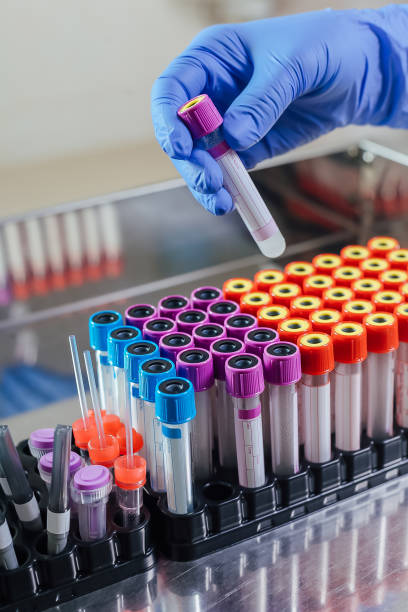Introduction:
Specimen collection is necessary in many sectors, including medical testing, scientific research, and environmental monitoring. It is the process of collecting samples from living beings, the environment, or chemicals for analysis in order to get useful insights. This seemingly simple method is essential for diagnosing diseases, conducting research, and even tracking environmental changes. In this blog post, we'll look at the numerous facets of specimen collection, including its importance, best practices, and applications across sectors.
What is Specimen Collection?
Specimen collection is the systematic process of gathering a sample from a specific source for examination or testing. Specimens can range from biological materials like blood, saliva, and urine to environmental samples like soil, water, and air. The purpose of collecting these samples is to gain insights that inform healthcare, research, or environmental conservation. Whether it's diagnosing an illness, conducting scientific research, or monitoring pollution levels, specimen collection is the first step toward making informed decisions based on data.
Types of Specimens Collected
Specimen collection can be broadly classified into different types based on the field of study. Some of the most common specimen types include:
-
Biological Specimens: These include blood, urine, saliva, and tissues collected for medical diagnosis, disease screening, or genetic testing.
-
Environmental Specimens: These are samples of air, water, soil, or plants collected for environmental studies, pollution monitoring, or agriculture research.
-
Clinical Specimens: These specimens are taken from patients for laboratory analysis to diagnose medical conditions, such as sputum samples for tuberculosis or swabs for testing infections.
-
Forensic Specimens: Often collected at crime scenes, these include hair, blood, or tissue samples used for criminal investigations and legal proceedings.
Each specimen type requires specialized handling and storage procedures to preserve its integrity.
Importance of Proper Specimen Collection
Proper specimen collection is critical to ensure the accuracy and reliability of results. A single mistake during the collection process can lead to inaccurate test results, which could have serious implications for patient care, research outcomes, or environmental protection efforts. For instance, contamination during specimen collection can introduce foreign elements, skewing the results.
Guidelines for Effective Specimen Collection
To ensure the integrity of specimens, strict guidelines should be followed during collection. Here are some best practices:
-
Use Appropriate Containers: Different specimens require different containers to maintain their stability. For example, urine samples should be collected in sterile, tightly sealed containers, while blood samples may require specific types of vials depending on the test.
-
Maintain Sterility: Many specimens, especially biological ones, must be collected under sterile conditions to prevent contamination. This can include using sterile equipment, gloves, and disinfecting the collection site.
-
Proper Labeling: Accurate labeling is crucial to avoid mix-ups. Each specimen should be clearly labeled with the patient's or source’s information, date and time of collection, and any special instructions related to the sample.
By following these guidelines, we ensure that the collected specimens are viable for analysis and provide reliable results.
Common Challenges in Specimen Collection
Specimen collection, while essential, is not without its challenges. Some of the most common issues include:
-
Contamination: This occurs when foreign substances come into contact with the specimen, leading to incorrect or unreliable results. For example, a urine sample may become contaminated if the collection container is not sterile.
-
Handling Errors: Improper handling, such as incorrect labeling or failure to transport samples in the required conditions, can compromise the quality of the specimen.
Addressing these challenges requires careful attention to detail, proper training for collectors, and clear communication with patients or research participants.
Technologies and Tools Used in Specimen Collection
Modern technologies have significantly improved the accuracy and efficiency of specimen collection. Automated systems, such as robotic arms and specimen tracking software, are reducing human error and enhancing the precision of specimen handling. For example, some labs now use automated blood collection devices that minimize the risk of contamination and improve the speed of collection.
Specimen Collection in Different Industries
Specimen collection isn't just vital in healthcare. Various industries rely on specimen collection for a range of purposes:
-
Healthcare: Medical professionals collect specimens for diagnosis, treatment monitoring, and research into diseases like cancer, diabetes, and infectious diseases.
-
Environmental Science: Environmentalists gather samples of water, air, soil, and plants to monitor pollution, climate change, and ecosystem health.
-
Agriculture: Farmers and researchers collect soil and plant samples to assess soil quality, monitor crop health, and improve farming practices.
-
Forensics: Law enforcement agencies collect biological and environmental samples at crime scenes for forensic investigations and to solve criminal cases.
Legal and Ethical Considerations
Specimen collection involves several ethical and legal considerations. In medical and research contexts, obtaining informed consent from the individual providing the specimen is a critical requirement. This ensures that participants understand how their specimens will be used and the potential risks involved. Additionally, specimens must be handled and stored with privacy and confidentiality in mind, following relevant laws and regulations like HIPAA in the United States.
Conclusion:
As technology improves, specimen collection will become more precise, efficient, and accessible. Automated systems, mobile health tools, and artificial intelligence innovations will improve accuracy while also allowing for more efficient and widespread collecting.
Comments on “Clinfinite Solutions Transforms Specimen Collection for Doctors and Scientists Worldwide.”